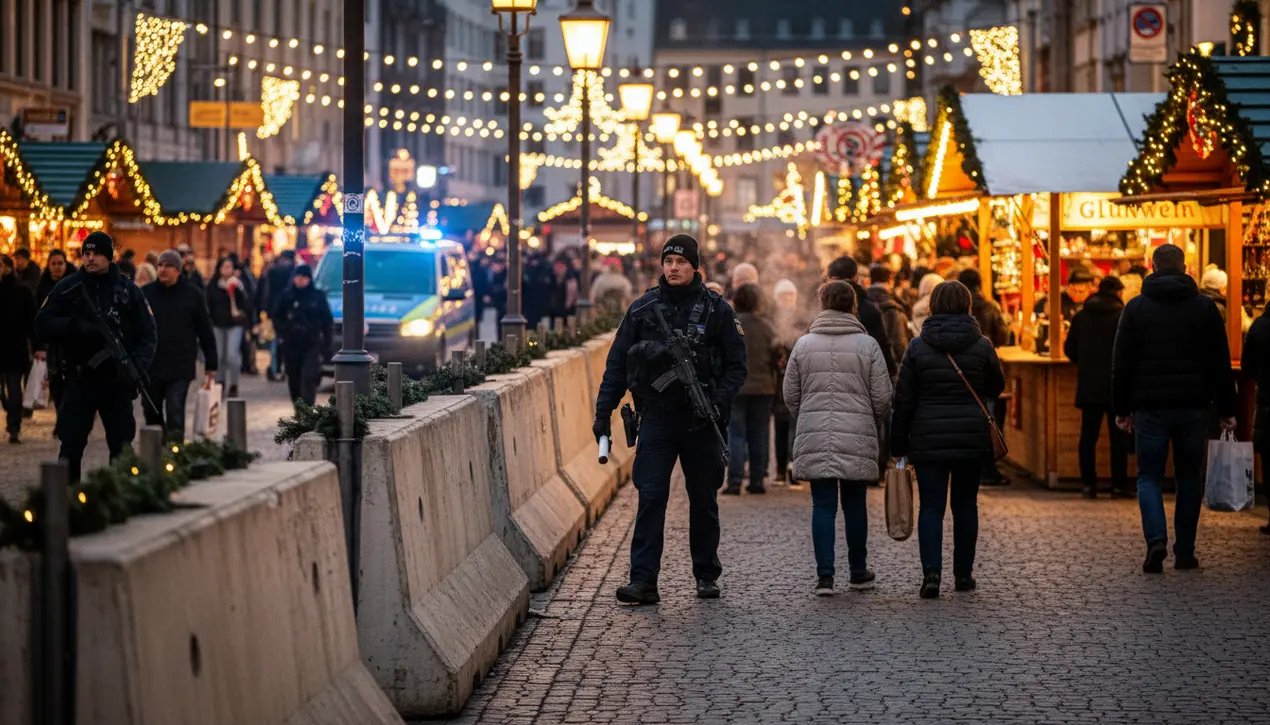
Otheraccidents & disastersEmergency Response
Germany Enhances Christmas Market Security After Past Attacks.
OL
Oliver Scott
1 day ago7 min read7 comments
The familiar glow of Germany’s Christmas markets returns for the 2025 season, but the festive atmosphere is now framed by an unprecedented security posture—a direct response to the traumatic attacks that have, in recent years, transformed these historic gatherings from symbols of communal joy into potential soft targets. As cities from Berlin to Nuremberg erect robust physical barriers and deploy significantly enhanced patrols, both uniformed and covert, the underlying narrative is one of a nation grappling with the complex calculus of risk management during peak public events.This strategic hardening is not merely a reactive measure; it represents a profound shift in Germany’s approach to domestic security, echoing contingency plans typically reserved for G7 summits or major international football tournaments. The shadow of the 2016 Berlin Breitscheidplatz attack, where a truck ploughed through a market, claiming 12 lives, looms large, serving as a stark historical precedent that security analysts consistently cite when modeling threat scenarios for crowded, open-air venues.Intelligence agencies have reportedly amplified their monitoring of online extremist forums, where seasonal gatherings are frequently highlighted as opportune moments for disruption. Consequently, the visible security—the concrete blocks, the weapon-check points, the heightened police presence—is just the tip of the iceberg.Beneath the surface lies a sophisticated web of surveillance, data analysis, and inter-agency coordination designed to pre-empt rather than just respond. The economic implications are equally significant; market organizers and stall owners, while grateful for the perceived safety, now operate under a new set of logistical and financial constraints, with increased costs for security infrastructure potentially impacting the traditional charm and accessibility of the markets.Public sentiment, as captured in recent polls, is bifurcated: a majority expresses relief and a renewed sense of safety, allowing them to fully immerse in the Glühwein and handmade ornament stalls, while a vocal minority laments the militarized aesthetic encroaching upon a cherished cultural tradition. This tension between security and normalcy is a microcosm of a broader European dilemma, forcing a continuous re-evaluation of how open societies can preserve their public freedoms while confronting evolving asymmetric threats. The ultimate success of this security overhaul will be measured not in the number of patrols, but in whether the spirit of Gemütlichkeit can coexist with, and even be strengthened by, these necessary, if sobering, precautions.
#featured
#Germany
#Christmas markets
#security
#barriers
#patrols
#public safety
#terrorism prevention
Stay Informed. Act Smarter.
Get weekly highlights, major headlines, and expert insights — then put your knowledge to work in our live prediction markets.
Comments
Loading comments...
© 2025 Outpoll Service LTD. All rights reserved.